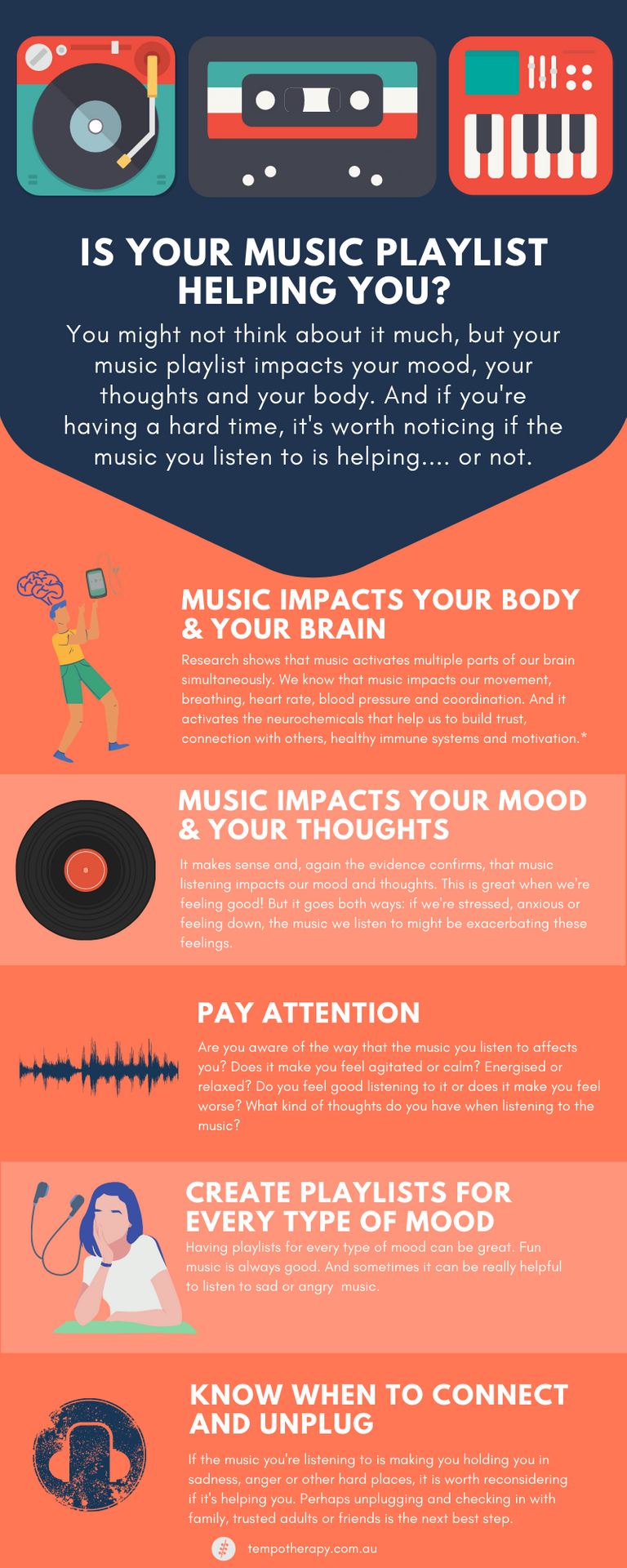
Creative embodied group supervision for therapists, clinicians and service providers
Embodied, creative and relational group supervision.

Some of you may remember the old mix-tape?
Remember the days of waiting by the radio with your blank cassette tape ready, hand hovering over the record button so that IF your favourite song came on you could record it?
Once recorded, you could make a mix of your favourite songs.
And making a mix-tape for your friends was a thing:
Mix-tapes were made for birthdays, Christmas presents, for a new love or when a friend was going away so they could play it in the car or on their Sony Walkman ...
Sometimes they would get stuck in the player, which would mean that all you could listen to was that tape. (This happened to me when I was travelling with a group of friends from Melbourne to Kakadu - luckily OK Computer by Radiohead is a great album).
These days it's much easier to make a mix-tape (aka playlist on Spotify). You can make playlists for all kinds of moods and easily share them.
If you read the blog on Music ... the superpower in your pocket and How music assists with rest and relaxation, you will see how music can impact us physiologically, emotionally and socially.
Being aware of how music is affecting us is really important. You can find out more information here or see the research on the Healthy / Unhealthy Uses of Music Scale here .
The infographic below gives some tips on how to best use your playlist as a support and to learn to identify when it may not be helping you.
PS The mix-tape really was a thing of beauty - I say let's bring it back!

Chanda, M. L., & Levitin, D. J. (2013). The neurochemistry of music. Trends in cognitive sciences, 17(4), 179-193.
O’Kelly, J. & Magee, W.L. (2013). Music therapy with disorders of consciousness and neuroscience: the need for dialogue. Nordic Journal of Music Therapy, 22(2), pp. 93-106.
Saarikallio, S., Gold, C., & McFerran, K. (2015). Development and validation of the Healthy‐Unhealthy Music Scale. Child and adolescent mental health, 20(4), 210-217.
Sena Moore, K. (2013). A systematic review on the neural effects of music on emotion regulation: implications for music therapy practice. Journal of Music Therapy, 50(3), 198-242.

Creative embodied group supervision for therapists, clinicians and service providers
Embodied, creative and relational group supervision.

A supportive space to slow down, reflect, and work through what’s weighing on you.